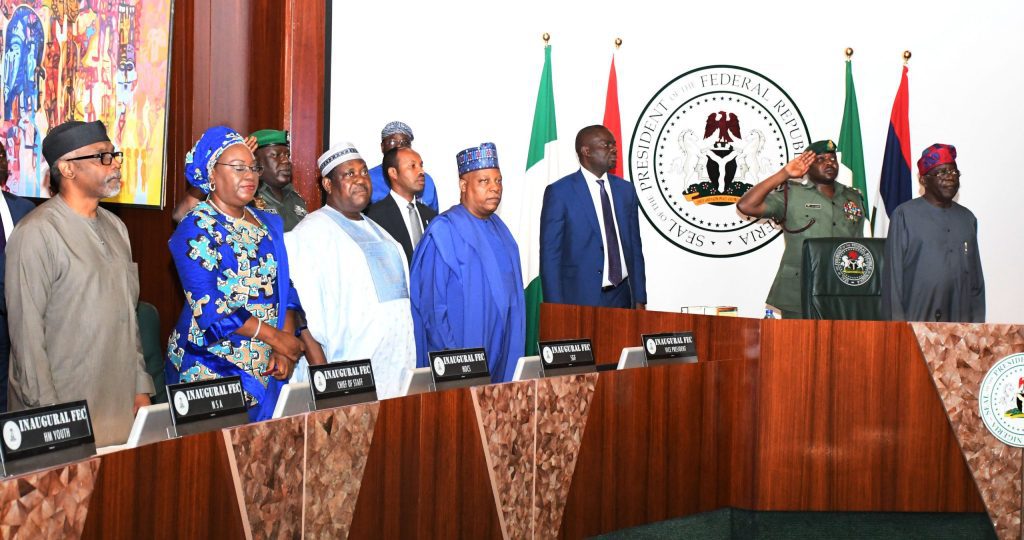The Revenue Mobilisation Allocation and Fiscal Commission is unhappy about the current high cost of governance.
The Commission observed that the high cost of governance led to less infrastructure and social services, which in turn caused a decrease in investment, high unemployment, and increased insecurity in the country.
It also linked the high cost of governance to various factors, including the expensive presidential system, a bloated bureaucracy with overlapping ministries, and widespread corruption.
In a statement signed by spokesperson Nwachukwu Christian in Abuja on Sunday, the commission said these issues are using public resources and preventing economic development, stating that no society can progress without a competent and cost-effective management system that maximizes the nation’s resources for everyone's benefit.
The statement mentioned, “The issue of high governance costs led to reduced infrastructure and social services, causing decreased investment, high unemployment, and increased insecurity in the country. It also emphasized the need for a competent and cost-effective management system that can maximize the nation’s resources for everyone's benefit.
“The head of RMAFC also pointed out that the high governance costs over the years have been very high and alarming, and thus unsustainable, as recurrent expenses consistently exceed capital expenses, negatively impacting investment, industrial expansion, infrastructure development, and growth of the real sectors of the economy.”
“The high governance costs in Nigeria were caused by the expensive nature of the presidential system of government, a large bureaucracy, duplication of government ministries, departments, and agencies, and widespread corruption. Other factors included high costs of public service delivery due to infrastructure failure, high security costs due to insurgencies, kidnappings, ethnoreligious agitations, and armed robbery, multiple salaries and severance allowances, extravagant activities and expenses, high domestic and foreign debts, and weak enforcement institutions.”
Nwachukwu made the comments in response to the Federal Executive Council’s adoption of the Oronsanye Committee Report as a way to reduce the high cost of governance by restructuring and rationalizing Federal agencies, parastatals, and commissions.
The Bola Tinubu-led Federal Government announced on February 28, 2024, that parts of the recommendations in the 12-year-old Oronsaye report would be implemented.
The 800-page report recommended reducing 263 of the statutory agencies to 161; scrapping 38 agencies; merging 52, and reverting 14 to departments in various ministries, among other actions. The report also suggested that the commission be incorporated with the National Salaries, Income and Wages Commission.
The RMAFC spokesperson, who praised the Tinubu administration for adopting the Oronsanye Report as a plan for streamlining government agencies, also mentioned that full implementation of the report can significantly lower administrative costs, freeing up funds for important infrastructure projects that directly benefit Nigerians.
He said the imbalance harms the real parts of the economy, ultimately affecting the lives of ordinary Nigerians.
The Commission's Chairman expressed hope that President Tinubu's administration's full adoption of the Oronsanye report was praiseworthy as it could greatly cut down the cost of governance, saving funds for infrastructure development that would have a positive impact on the citizens' lives.
Discussing the current fiscal and monetary reforms by President Ahmed Bola Tinubu's administration, the RMAFC spokesperson explained that the policies of giving priority to price and exchange rate stability to promote sustainable economic growth and protect the livelihoods of Nigerians are quite commendable.
He stated that such policies will play a crucial role in lessening the impact of hyperinflation on the economy. The RMAFC considers price stability and exchange rate stability as good policies. Price stability preserves the purchasing power of the national currency, gives confidence to investors, and helps citizens plan their spending and savings more effectively.
Nwachukwu further recommended that the committee overseeing the Oronsaye Report's implementation should consider agencies established since the report's initial publication in 2014 to ensure a comprehensive overhaul that maximizes savings for infrastructure development.
He urged the federal government and states to use the increased allocations from the Federation Accounts Allocation Committee wisely.
He said, "These extra funds should be used to provide adequate support to the Nigerian people, especially those struggling with the effects of subsidy removal."
The commission urged the government to strengthen cooperation between monetary and fiscal authorities, emphasizing that through effective cooperation and implementing the Oronsaye Report alongside ongoing structural reforms, Nigeria can achieve a more stable exchange rate, control inflation, and create a more business-friendly environment for all.



